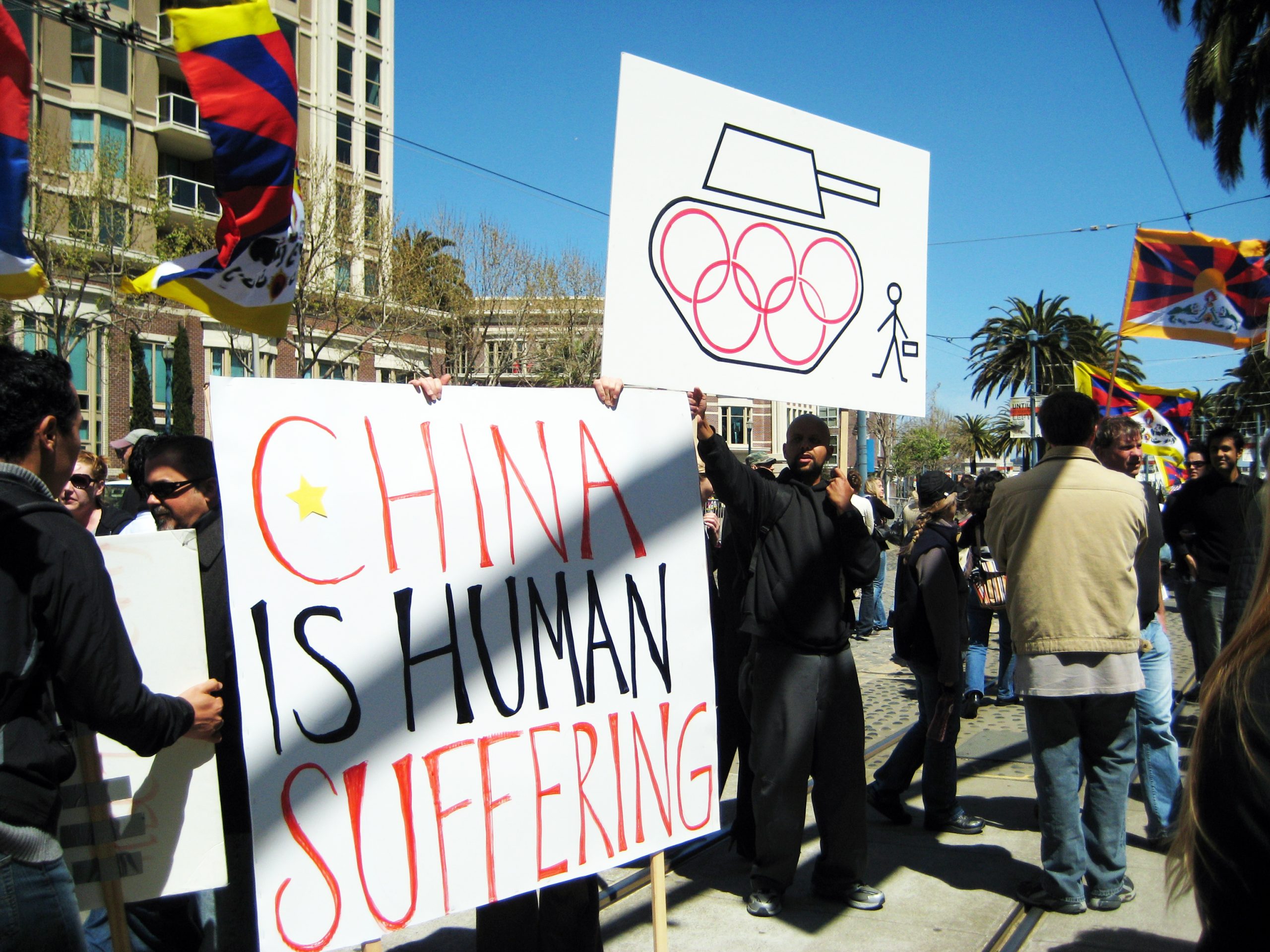The conclusion of the EU-China Comprehensive Agreement on Investment (CAI) on 30 December 2020, after 6 years of negotiations, brought a lot of attention to the human rights violations that occurred in China. The US administration and many human rights activists opposed this agreement highlighting the ongoing repression against religious and ethnic minorities, in particular Tibetans, and Uyghurs, the use of forced labour and the sexually abused women in the re-education camps in Xinjiang, the imposition of national security law in Hong Kong to stop the protests, and the role played by China in the Myanmar coup. Whereas the several criticisms make us reflect on the repercussion this agreement may have for the EU external and internal legitimacy and the transnational relationship; The EU demonstrated a great ability to separate economics from politics to reach commercial benefits, in particular amid a COVID19 crisis.
Human rights, nonetheless, cannot be denied. The international community must hold the Chinese government accountable and condemn the latest violations. Human rights do not belong solely to the EU and the US citizens, they belong to all mankind, who must have the possibility to claim them.
The EU ‘sponsored’ the CAI as the first agreement to deliver on the liberalization of the parties’ markets, the promotion of a level playing field, obligations for the behaviour of state-owned enterprises, comprehensive transparency rules for subsidies, and commitments related to sustainable development and labour. Sabine Weyand, the European Commission Director-General for trade, affirms that China engaged bilaterally in fields it did not commit at the WTO and this may lead to a more rule-based trade policy at the global level. Furthermore, Von der Leyen, president of the EU Commission, declared that the CAI will promote EU values. One of the main goals of the European Foreign and Security Policy is to develop and consolidate democracy, the rule of law, and respect for human rights & fundamental freedoms. However, a spillover, among Chinese leaders, from economic cooperation to uphold human rights seems far from becoming reality. Bernd Lange, a German Member of the European Parliament (EP), mentioned that the ratification of the CAI by the EP would depend on the Chinese commitment towards the reduction of forced labour. Nevertheless, France already claimed that it will approve it regardless of the Chinese commitment to workers’ rights.
The Chinese narrative on the Uyghur protests
The situation in China is much more complex than how the western media describe it and the gathered information may be biased given the authoritarian character of the Chinese government. For instance, whereas China pictures the Uyghur as terrorists; The western media does not always manage to gather reliable data. As argued by Justin V. Hastings, Professor in International Relations and Comparative Politics at the University of Sydney, conflicts between the Han Chinese and Uyghurs already started in 1990. The low-level violence increased over time and reached its peak on 5 July 2009 with the violent protests in Urumqi. The cause of the protests appears to have been the deaths of two Uyghurs during a riot caused by rumors according to which Uyghur workers sexually assaulted a Han woman. Following the 9/11 terrorist attacks in the US, also China started to label the Uyghurs as terrorists belonging to the East Turkestan Islamic Movement, a terrorist organization established in 1989, recognized in 2002 by the United Nations for being associated with Al-Qaida. The Chinese narrative as stated in the Global Times, the Chinese Communist Party’s People’s Daily newspaper, is that the issues Xinjiang faces are not about ethnic, religious groups or human rights, but rather about counterterrorism.
Moreover, China reserves special treatment for ethnic minorities, and minorities have benefited from affirmative actions such as bonus credits for students applying to university and interest loans to businesses operated by minorities. These affirmative actions led to reversed discrimination, perceived, in particular, by the Han which constitute around 40% of the Xinjiang population. The Chinese narrative as stated in the Global Times, the Chinese Communist Party’s People’s Daily newspaper, is that issues Xinjiang faces are not about ethnic and religious groups or human rights, but rather they are about counterterrorism. These factors lead to the absence of internal pressure from the Chinese citizens that in a different situation could have influenced policymakers, but in this case, sometimes even accept and legitimize the CCP’s conduct.
How can the international community hold China accountable?
Rodney Dixon, one of the lawyers that submitted the allegation for the Xinjiang’s events to the International Criminal Court (ICC), affirms that legal actions can be taken although China does not recognize the ICC Jurisdiction, since the Uighurs were unlawfully deported from Tajikistan and Cambogia, and the ICC jurisdiction applies in case of cross-border crimes. The inclusion of human rights clauses in all agreements on trade or cooperation with non-EU countries is a valid option to tackle these human rights violations, yet it leaves too much power to the Chinese leaders who already demonstrated poor compliance with international obligations in the past. As recognized by the research Raffaello Pantucci, so far, the most effective measures, when interacting with China, have been micro-level measures, namely, a concise act of lobbyism towards specific companies. Finally, the EU cannot dismiss these human rights violations but has to find the most appropriate measures to tackle the issue at hand, and this may be a challenge.

